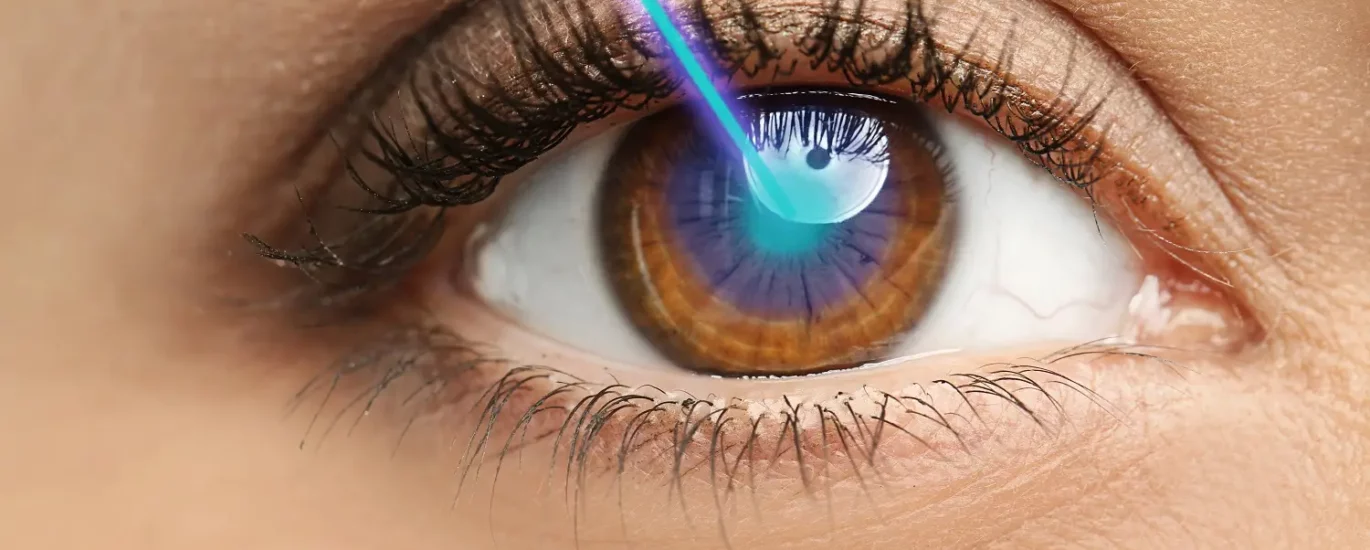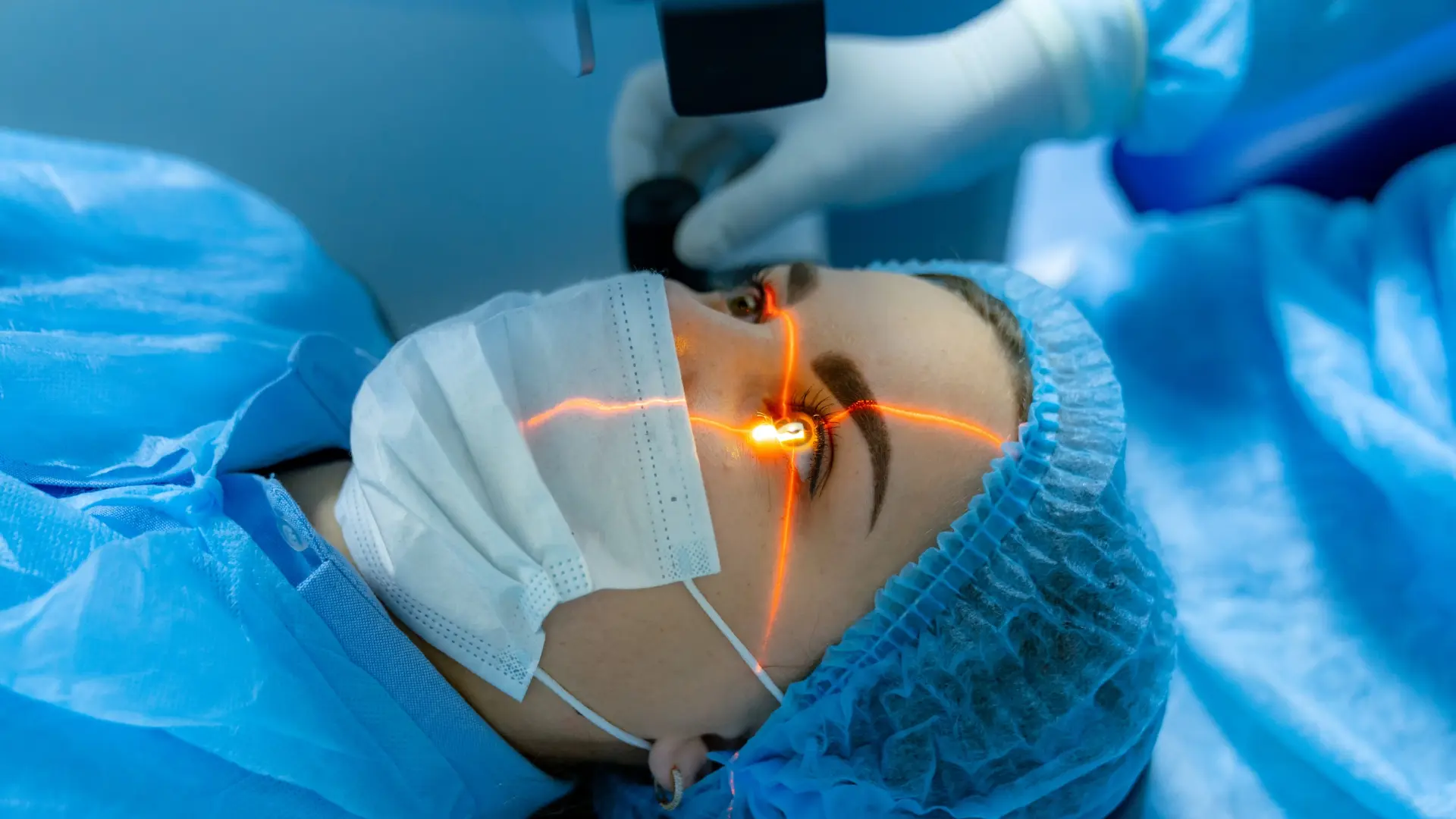

wordpress-seo domain was triggered too early. This is usually an indicator for some code in the plugin or theme running too early. Translations should be loaded at the init action or later. Please see Debugging in WordPress for more information. (This message was added in version 6.7.0.) in /home/sehatnagar.com/public_html/wp-includes/functions.php on line 6114
Laser eye surgery has become very popular in order to fix common vision problems like nearsightedness, farsightedness, and astigmatism. It is a procedure that can help people see better and rely less on glasses or contacts. However, not everyone is a good person for this surgery. It is important to know if you’re eligible and understand the possible risks involved. Laser eye surgery, like LASIK or PRK, uses lasers to reshape the cornea of the eye and fix vision issues. It’s a modern and advanced technique that aims to improve how the eye focuses and make vision clearer.
But before getting too excited about laser eye surgery, it is important to know that it is not suitable for everyone. Some people may have factors that make them unsuitable candidates for the procedure. By understanding who might not be a good fit, we can better understand the limitations of laser eyes surgery. Let’s take a closer look at the factors to consider when determining if someone is eligible for this surgery.
Laser eye surgery includes different procedures like LASIK and PRK that can fix vision problems. Let’s learn more about them:
LASIK is the most common laser eyes surgery. It involves creating a thin flap on the eye’s surface, using a laser to reshape the cornea underneath, and then putting the flap back in place. It is a quick and comfortable procedure.
PRK is another type of laser eyes surgery suitable for people with thinner corneas. In PRK, the surgeon removes the outer layer of the cornea, reshapes the underlying tissue with a laser, and allows it to heal naturally over time.
Laser eyes surgery corrects refractive errors, which affect how the eye’s focuses light. Here’s a simple explanation:
If you have trouble seeing distant objects, laser eyes surgery for myopia flattens the cornea, helping you see faraway things more clearly.
If you struggle with close-up vision, laser eyes surgery for hyperopia makes the cornea steeper, improving your ability to see things up close.
For blurry or distorted vision caused by astigmatism, laser eye surgery reshapes the cornea to make it more symmetrical and fix the problem.

To determine if someone is a good candidate for laser eye surgery, certain factors are considered. Let’s look at the important criteria:
Laser eye surgery is typically suitable for adults aged 18 and above for LASIK, and 21 and above for PRK. Your vision should also be stable for about a year or two, meaning your glasses or contact lens prescription hasn’t changed much.
The degree of your vision problem, like nearsightedness, farsightedness, or astigmatism, is taken into account. Laser eye surgery can correct a certain range of these issues, but extreme cases might require alternative treatments.
Good eye health is essential for successful surgery. You should have healthy corneas, enough tear production, and no underlying eye conditions or diseases that could affect healing. Conditions like glaucoma, cataracts, severe dry eyes, or corneal diseases may make you ineligible. Some medical conditions like autoimmune diseases, diabetes, or immunodeficiency disorders may also impact healing and increase risks. It’s important to discuss any existing medical conditions with your eye care professional to evaluate suitability for the surgery.
Hormonal changes during pregnancy and breastfeeding can affect vision stability. It’s generally recommended to wait several months after breastfeeding before considering laser eyes surgery. During pregnancy, it’s best to postpone the procedure as the effects on the baby are unknown. Laser eye surgery’s safety during pregnancy hasn’t been extensively studied. To ensure the well-being of both the mother and baby, it’s advisable to wait until after pregnancy and breastfeeding to undergo the surgery.
Following these criteria helps determine if laser eye surgery is a good option for you. It’s important to remember that specific circumstances may influence the criteria, and a thorough evaluation and consultation with an experienced eye surgeon are crucial in determining your eligibility.
While laser eye surgery can be a great option for many people, there are situations where it may not be suitable. Let’s see who might not be good candidates for the procedure:
Laser eye surgery works best when your vision has been stable for a while. If your vision keeps changing or your glasses or contacts prescription keeps getting updated, it’s better to wait until your vision settles down before considering the surgery.
Some ongoing medical conditions can affect your eye health and how well you heal after the surgery. Conditions like diabetes, autoimmune diseases, or problems with your immune system can impact the success of laser eye surgery. It’s important to discuss your medical history with an eye doctor to see if the surgery is safe for you.
Certain eye conditions make laser eyes surgery unsuitable. These conditions include:
Patients with Unrealistic Expectations or High-Risk Professions:
It’s important to have realistic expectations for laser eyes surgery. If you expect perfect vision without glasses or have unrealistic hopes about the outcome, it’s essential to reconsider. Also, if you work in high-risk professions like professional sports or the military, where eye injuries or extreme conditions are common, laser eyes surgery may not be recommended due to the higher risk of complications.
Identifying who should not have laser eyes surgery helps ensure safety and success. It’s vital to have a detailed discussion with an eyes doctor who can assess your specific situation, medical history, and eyes health to determine if laser eyes surgery is the right choice for you.
It’s important to know about the potential risks and complications that can occur with laser eye surgery. Here’s a simple explanation:
After the surgery, your eyes may feel dry and uncomfortable. You might experience a gritty feeling or blurry vision. Usually, these symptoms improve over time, but in rare cases, they may persist or need further treatment.
Some people may have trouble seeing at night after the surgery. They may see glare, halos around lights, or have difficulty seeing clearly in low-light conditions. These problems often get better with time, but it’s good to be aware of them.
While the goal of the surgery is to improve your vision, there’s a small chance that you may not achieve the exact level of correction needed. This can mean that you still need to use glasses or contacts, or you may have objects appearing closer than they actually are. Regular check-ups with your eye doctor can help address these concerns.
In LASIK surgery, a thin flap is created on the cornea. There’s a slight risk of complications related to this flap. These can include the flap moving out of place, irregularities in the flap, or cells growing under the flap. Although these complications are rare, they may require additional treatment or, in rare cases, further surgery.
Like any surgery, there’s a small risk of infection or other complications. Following the instructions provided by your surgeon after the surgery can help minimize these risks. Factors like slow healing, thinning of the cornea, or scarring can also contribute to complications.
Before the surgery, your eye doctor will have a detailed discussion with you about the potential risks, complications, and limitations of the procedure. This is called informed consent. They want to make sure you fully understand the benefits and possible drawbacks so that you can make an informed decision. A thorough pre-operative assessment is also crucial. It involves examining your overall eye health, checking the shape and thickness of your cornea, evaluating your vision, and discussing your medical history. This helps identify any potential issues and ensures the best possible results.
It is important to have realistic expectations about the surgery. While it can greatly improve your vision, it might not give you perfect vision, and you may still need glasses or contacts for some activities or as you get older. Every person is different, so it’s important to have open and honest communication with your eye doctor. They can give you a clear idea of what to expect based on your specific situation and answer any questions you have. By being well-informed, having realistic expectations, and following the advice of your eyes doctor, you can make a confident decision about laser eyes surgery and minimize the potential risks and complications.
If laser eye surgery isn’t the right choice for you, don’t worry! There are other ways to correct your vision. Let’s look at some simple and advanced options:
laser eye surgery is a popular procedure for vision correction, but it may not be suitable for everyone. It’s important to understand the eligibility criteria and potential risks of eyes surgery. Certain individuals, such as those with unstable vision, chronic medical conditions affecting eye health, specific eye conditions, or unrealistic expectations, may not be good candidates for laser eye surgery. However, there are alternative options available for vision correction. These include glasses, contact lenses, implantable lenses, and corneal implants. Each option has its own benefits and considerations, and it’s crucial to have personalized consultations and professional advice from an eye care specialist to determine the best choice for your specific needs.
Before making a decision, it’s important to thoroughly understand the potential risks and complications associated with laser eye surgery. Informed consent and a comprehensive pre-operative assessment are essential to ensure the best possible outcomes. Managing expectations and understanding the limitations of the surgery will contribute to a more satisfying experience.
By considering alternative vision correction options and seeking professional advice, you can find the right solution to improve your vision and enhance your quality of life. Remember to consult with an eye care professional who can guide you through the decision-making process and help you make an informed choice about the best path for your vision correction journey.